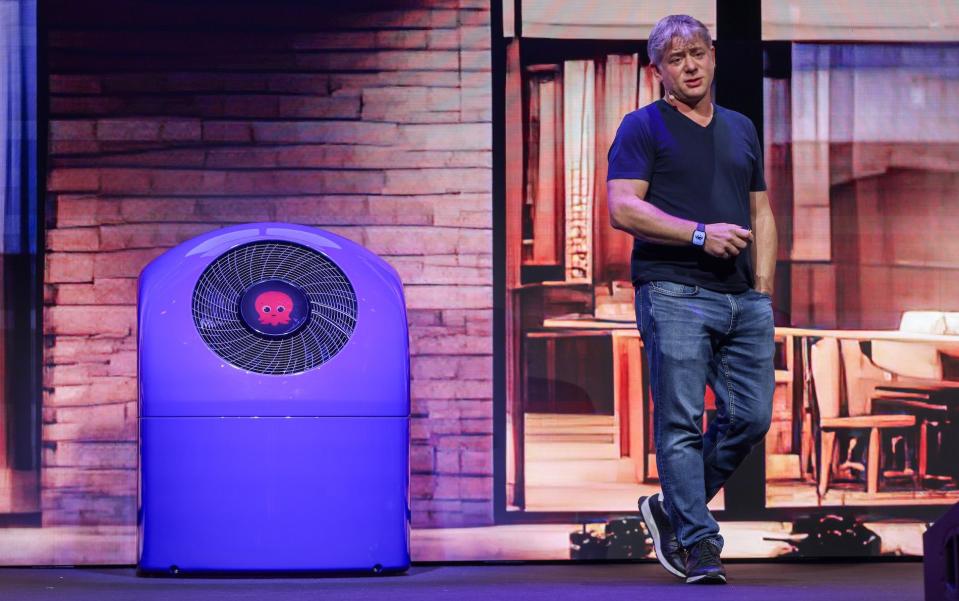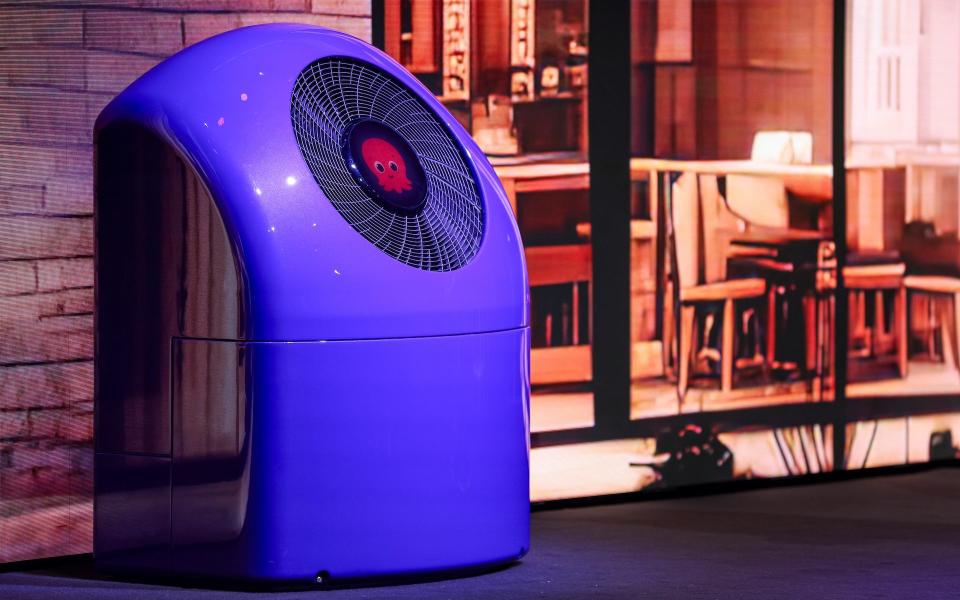Era of ‘ugly’ heat pumps is over, claims Octopus Energy

Octopus Energy has vowed to end the era of expensive and “ugly” heat pumps with a new “Cosy” range that works as well as a gas boiler.
The gas and electricity supplier has said it will roll out the new devices by December, with claims some households will receive them for free once government grants are taken into account.
Greg Jackson, chief executive of Octopus, said the heat pumps will be able to produce hot water at the same temperature as gas boilers, meaning households would not require new pipes and radiators.
Most devices can currently only achieve water temperatures of around 45C, compared with at least 60C for boilers.
This means they only work with special pipes and radiators, which has fuelled concerns about their viability.

However, Mr Jackson said on Thursday that the new Octopus device will be different and have a “radical new design” that “ends the world of ‘ugly heat pumps’”.
“Our heat pumps will run at up to 75C so if a household has radiators and pipes in good condition they will not need replacing,” said Mr Jackson. “That should lead to a dramatic cost reduction.
“We estimate it will cost about £8,000 for installation in a three-bed semi-detached house. The Government is giving grants of £5,000 so the household will typically pay £3,000.”
“If they already have the other necessities, such as a water cylinder, then the cost could fall as low as £5,000, which is the same as the government grant. So for those households, it would be free.”
If Mr Jackson’s predicted costs prove accurate, Octopus’ new air source heat pumps could disrupt the existing heat pump market.
Fitting existing air source heat pumps usually costs between £7,000 and £15,000, while a ground source heat pump installation typically costs £17,000 to £35,000.
Such costs have put off households with installation rates hovering at just 55,000 a year.
Heat pumps extract heat from the air or ground outside a building and then use refrigerant chemicals and electric pumps to concentrate warmth.
Heating homes and businesses is responsible for more than a third of UK CO2 emissions and the Government has said it wants to accelerate heat pump installations to 600,000 a year by 2028.
Last month, the Government extended its boiler upgrade scheme, offering £5,000 towards heat pump installations for the next five years.
Octopus said its new Cosy range, which can be used in homes with up to three bedrooms, will eventually include more powerful models suitable for four to five-bedroom homes.
However, Mr Jackson admitted at a tech summit on Thursday that the new heat pumps will not lead to instant money savings for households.
This is because the electricity used by heat pumps costs more per unit of energy than the gas used by boilers.
“For heat pumps generally to take off the government needs to rethink the levies it adds to electricity bills,” said Jackson.
Octopus began as a start-up in 2016 but now provides energy to five million UK homes.

 Yahoo Finance
Yahoo Finance 